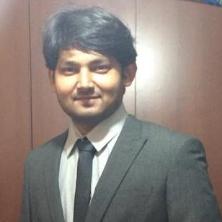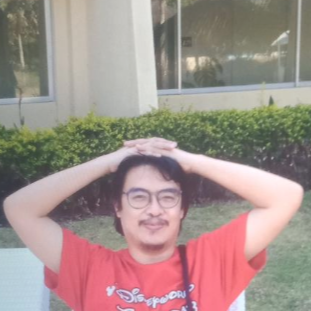Queuing Theory
Homework Help & Tutoring
We offer an array of different online Queuing Theory tutors, all of whom are advanced in their fields and highly qualified to instruct you.
Queuing Theory
Queuing Theory is a field of mathematics concerned with queues (i.e. waiting lines). It is considered to be a branch of operations research, since valuable business decisions can be made based on the inputs from queuing theory. The fundamental problem which queuing theory attempts to solve is the prediction of the waiting line length and waiting time using a model-based approach. Thus, it can be also stated that it is concerned with explaining the queue formation and propagation. Queuing theory is closely related to probabilistic theory and stochastic processes in terms of using its valuable mathematical tools. On the other hand, methods from queuing theory are applicable in numerous disciplines: communications, operations research, reliability engineering, microprocessor electronics, management & business organization, computing, traffic engineering, psychology, etc. You can probably think of many other real-world applications where knowing how a waiting line will change is an advantage. Whether we wait for service to be performed (e.g. supermarkets, banks), wait for public transport to arrive (bus, subway), or any kind of response from a machine (computers or smartphones), queuing is part of our everyday experience.
Some of the topics covered in a standard course on queuing theory would be:
- Topics from probability and stochastic processes relevant for queuing theory (random variables, random processes, types of distributions, moments, central limit theorem, law of large numbers, etc)
- Performance measures of queuing systems
- Description of queuing systems using Kendall’s notation
- Infinite- and finite-source systems
- Analysis of scheduling policies (first-come-first-served, first-come-last-served, served-in-random-order, processor sharing, shortest job first, etc)
- Birth-death processes and simple Markovian queues
- Multidimensional birth-death processes
- Single- and multi-server queues
- Queuing networks (Jackson networks, BCMP theorem)
- Little’s law
- Asymptotic analysis of queues
- Programming simulations of queuing models
- Renewal theory
To understand the basics of Queuing Theory, it is important to first have a brief overview of the standard notation:
- λ: average rate of arrival of customer
- µ: average service rate
- ρ = λ / µ for single server queues: the probability that the server is busy or the probability that someone is being served
- s: number of servers
- Pn: probability that there are n customers in the system
- L: average number of the customers present in the system
Additionally, models are described via Kendall’s notation as follows:
A / B / s / q / c / p
where:
A stands for the distribution describing arrival process,
B stands for the distribution describing service (distribution of service duration),
s stands for the total number of servers,
q stands for the queuing discipline (FIFO, LIFO, SIRO...)
c stands for the system capacity in case of a finite queue, and
p stands for the population size (number of possible customers).
When omitted, common practice is to assume that q = FIFO (First-In-First-Out), c = ∞ (i.e. infinite queue), and p = ∞ (i.e. open system). A typical example of a queuing model is M/M/1: M stands for Markovian process in both arrival and service process, with single (1) server.
Apart from your study materials and classes, you can find many useful lectures and various explanations concerning queuing theory on these websites:
- MIT open course - Queues: Theory and Applications
- Introduction to Queuing Theory from Florida Atlantic University by Dr. Bob Cooper: lecture videos and book
- Basic Queuing Theory, Dr. Janos Sztrik, University of Debrecen (book)
- Basic relations in Queuing Theory from Missouri University of Science and Technology
- Fundamental formulas in Queuing Theory from KTH Royal Institute of Technology (Sweden)
To fulfill our tutoring mission of online education, our college homework help and online tutoring centers are standing by 24/7, ready to assist college students who need homework help with all aspects of queuing theory. Our mathematics tutors can help with all your projects, large or small, and we challenge you to find better online queuing theory tutoring anywhere.
College Queuing Theory Homework Help
Since we have tutors in all Queuing Theory related topics, we can provide a range of different services. Our online Queuing Theory tutors will:
- Provide specific insight for homework assignments.
- Review broad conceptual ideas and chapters.
- Simplify complex topics into digestible pieces of information.
- Answer any Queuing Theory related questions.
- Tailor instruction to fit your style of learning.
With these capabilities, our college Queuing Theory tutors will give you the tools you need to gain a comprehensive knowledge of Queuing Theory you can use in future courses.
24HourAnswers Online Queuing Theory Tutors
Our tutors are just as dedicated to your success in class as you are, so they are available around the clock to assist you with questions, homework, exam preparation and any Queuing Theory related assignments you need extra help completing.
In addition to gaining access to highly qualified tutors, you'll also strengthen your confidence level in the classroom when you work with us. This newfound confidence will allow you to apply your Queuing Theory knowledge in future courses and keep your education progressing smoothly.
Because our college Queuing Theory tutors are fully remote, seeking their help is easy. Rather than spend valuable time trying to find a local Queuing Theory tutor you can trust, just call on our tutors whenever you need them without any conflicting schedules getting in the way.






